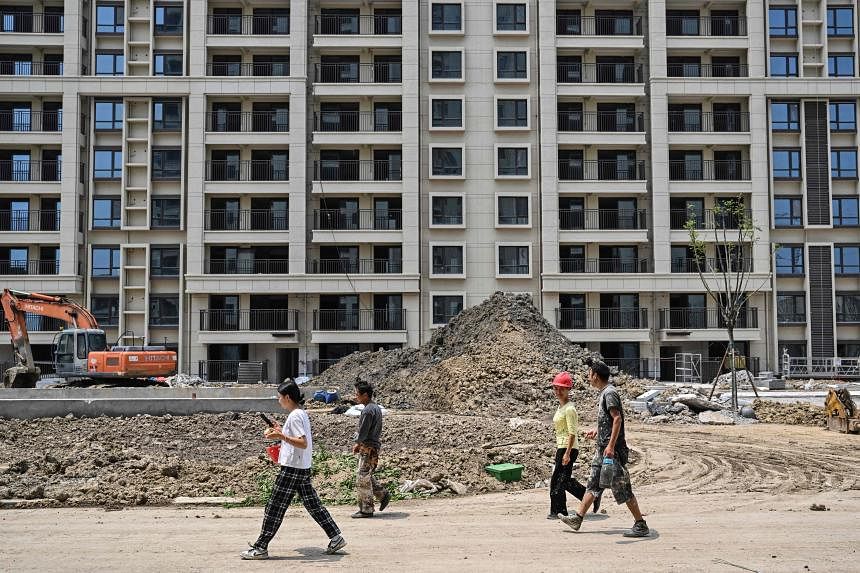BEIJING - China’s economy showed tentative signs of stabilising after months of weak growth, with consumption and factory output picking up in August following a stimulus push, but the road to recovery could remain bumpy for some time.
The latest economic figures released on Friday boosted cautious optimism that the slowdown in the world’s second-largest economy might finally be easing. China reported better-than-expected inflation, trade and credit data for August as well.
China’s good report for August suggested that the government’s recent roll-out of growth measures has started to bear fruit, analysts said.
But they expected the pick-up to remain modest, given strong headwinds, including low business confidence among companies and consumers alike, as well as a deep slump in the country’s property sector.
Dr Zhang Zhiwei, chief economist at Pinpoint Asset Management in Hong Kong, said Beijing’s policy easing likely helped improve China’s economic momentum in August.
More policies are likely to be announced in the coming months to further stabilise growth, he added.
From Friday, China’s central bank will cut the amount of cash that Chinese banks are required to hold as reserves – the second such reduction since the start of the year.
The move will inject more than 500 billion yuan (S$93.8 billion) into the economy.
Dr Zhang said this indicated that the government saw an urgent need to boost the economy, given the disappointingly weak growth in the months prior to August.
The central bank made the first cut in March, also by 25 basis points, to shore up its recovery for 2023 following China’s relaxation of its rules to fight Covid-19 in December.
The government had earlier in September also lowered rates for existing mortgages and introduced tax cuts for families with children and elderly people to boost consumption, which has remained tepid so far.
Dr Larry Hu, chief China economist at financial services firm Macquarie Group in Hong Kong, expects headline growth to improve in the months to come on more policy support and last year’s weaker base.
China’s economy grew by 3 per cent in 2022 as Beijing persisted with its zero-Covid policy, which included flash lockdowns, daily mass testing and closed borders at a time when other countries were moving towards living with the coronavirus.
It was also the first year it missed its stated growth target of around 5.5 per cent.
Dr Hu said China’s fast-falling property market was not out of danger yet, and that business confidence among companies and consumers remained low.
China’s once-red-hot property market – which accounts for as much as a quarter of the country’s gross domestic product – has been declining sharply and dragging on growth since the government took steps in August 2020 to cut down on developers’ ballooning debt.
The sector continues to stifle economic momentum, with new home prices dropping in 52 of 70 large cities in August, up from 49 cities in July.
Dr Hu urged Chinese policymakers to make bolder moves to boost growth in the economy.
Economists have in recent months been urging the government to introduce stronger stimulus measures to spur growth, with suggestions ranging from generous tax cuts to household consumption vouchers.
“The strategy of a piecemeal stimulus might eventually add up, but it also makes the road to recovery a bumpy one,” he said.
The latest reserve requirement cut was “a modest easing, because it could not address the key issue, which is the lack of credit demand under the current property downturn”, he added.
Still, the latest economic data was largely positive.
Consumer spending in August grew 4.6 per cent from a year ago, and 2.1 percentage points faster than July, boosted by the summer holiday break in China.
Factory output expanded by 4.5 per cent year on year.
Both indicators surpassed the expectations of economists polled by media outlets Bloomberg and Reuters.
Official figures out before Sept 15 showed that credit demand was also recovering, with the consumer price index inching up to 0.1 per cent, allowing China to side-step deflationary pressures.
The decline in trade also fell by 5.8 percentage points between July and August.


